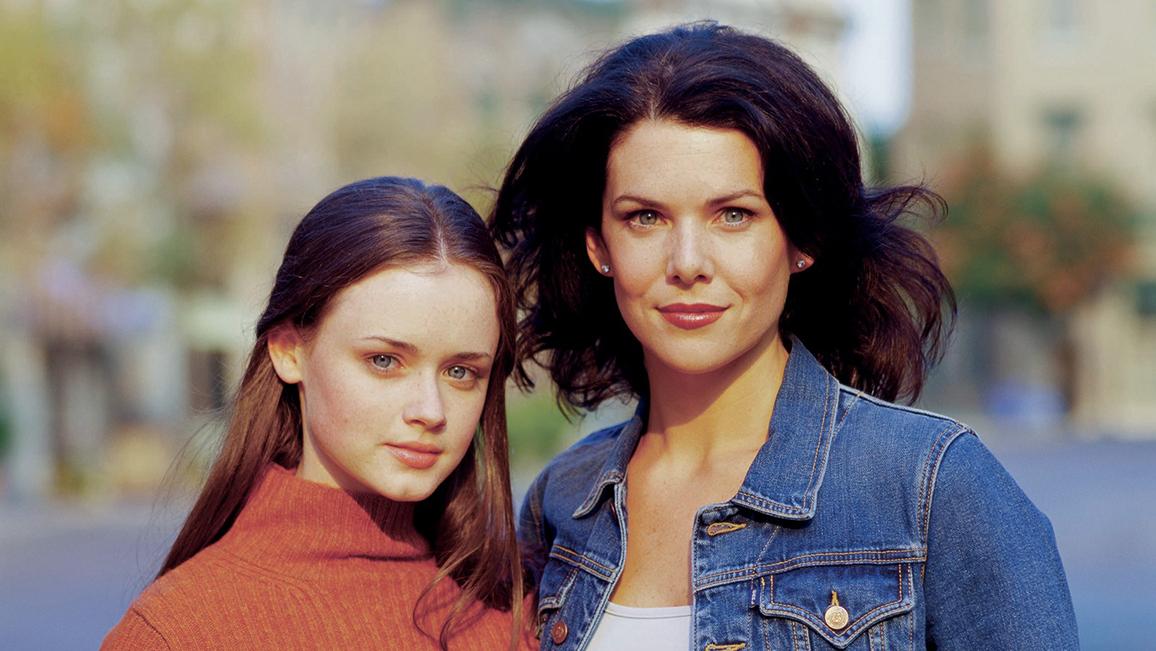Why I can’t wait for the return of ‘Gilmore Girls’ – the intelligent woman’s TV show
‘Gilmore Girls’ celebrated smart, confident women – let’s hope the new episodes don’t disappoint

There aren’t many television characters you’d like to be friends with. Monica Geller? Too needy. CJ? She’s great, but so busy; you’d never catch up. Alicia Florrick? Too intimidating. But the Lorelais? In a heartbeat.
The Lorelais, for those who haven’t spent years wishing they could mosey on down to Luke’s for some pancakes and witty conservation, are the protagonists of Gilmore Girls, which finished nearly a decade ago but returns in November for a four-part Netflix special. The trailer for this has just been released, reminding fans why this remains must-see TV for the intelligent woman.
Ostensibly a heart-warming drama about small town life, this story of a teen mother, her own mother, and her now-teenage daughter was boundary-pushing and brilliant. For one, it passed the Bechdel Test with flying colours, from Rory and Lane debating obscure bands to Lorelai and Sookie discussing their business.
These days, with a woman Prime Minister and possibly the first woman president, stars like Emma Watson and Jennifer Lawrence campaigning for equality, and numerous feminist communities online, teenage girls don’t have to look far for role models. But in 2000, when the series debuted, feminism wasn’t really on the agenda. Gone were the “Girl Power” years; popular culture was dominated by stories of finding your man, a la Bridget Jones (Buffy being one honourable exception). Amy Sherman-Palladino’s dynamic series took a different view. It may have focused in part on romance, but this was always secondary to strong friendship, self-belief and having the right values. Witness the fact Rory didn’t have to choose a man in the finale – indeed, choosing a man (and a boat) over Yale left her miserable – or that the real relationship tension was not Lorelai and Luke but Lorelai and her mother Emily.
The show presented positive images of female relationships. I devoured programmes like The OC, Dawson’s Creek and Gossip Girl, but they were a poor advertisement for female friendship, with their bitchiness and backstabbing. Yet while there were fallings out, Gilmore Girls made a virtue of solidarity and sisterhood, between Lorelai and Sookie, and between Rory, Lane and later Paris. Even Lorelai and Emily ultimately had each other’s backs.
As a pupil at an all-girls school, thinking about my exams when the show started in the UK, I loved that it depicted academic excellence among women as a good thing. Even when Rory wasn’t studying, she was usually reading something intellectually improving. Yes, her braininess could be irritating, but how wonderful to watch a show that made a virtue of doing your homework, getting good grades and aspiring to a top university. How wonderful to see girls doing that, rather than rating their success at school around whether they were prom queen.
By the same token, how incredibly refreshing to have a series so comfortable with women running their own business and being entrepreneurial. There’s an early episode, where Richard comes to Stars Hollow and mansplains to Lorelai how she should be operating professionally; you can’t help but cheer when she makes clear she operates on her terms, and that it pays off. When she and Sookie find out they’ve secured the Dragonfly, it’s as emotional a moment as any with Christopher.
In the Gilmore Girls universe, women could be anything, achieve anything and write their own stories. If they were occasionally inhibited by circumstance, they were rarely held back by their sex. Lorelai was not a failure for getting pregnant at 16, but navigated a different path, while Rory editing the Yale newspaper was a personal triumph, but not portrayed as surprising. Even Lane, despite her restrictive mother, could go on tour with her rock band (the final series, which saw her become a sexually unfulfilled mother and largely abandon her dreams, was a betrayal – but wasn't written by the original creator).
Wordier than most TV series, with characters talking a mile a minute, Gilmore Girls celebrated smart, confident women and made a virtue of speaking up, whether during a town meeting or over a heated Friday night meal. It was clever, funny and unashamedly feminist – and while series like Girls are contenders, there hasn’t been a show like it since. Let’s hope the new episodes don’t disappoint.
Join our commenting forum
Join thought-provoking conversations, follow other Independent readers and see their replies
Comments
Bookmark popover
Removed from bookmarks